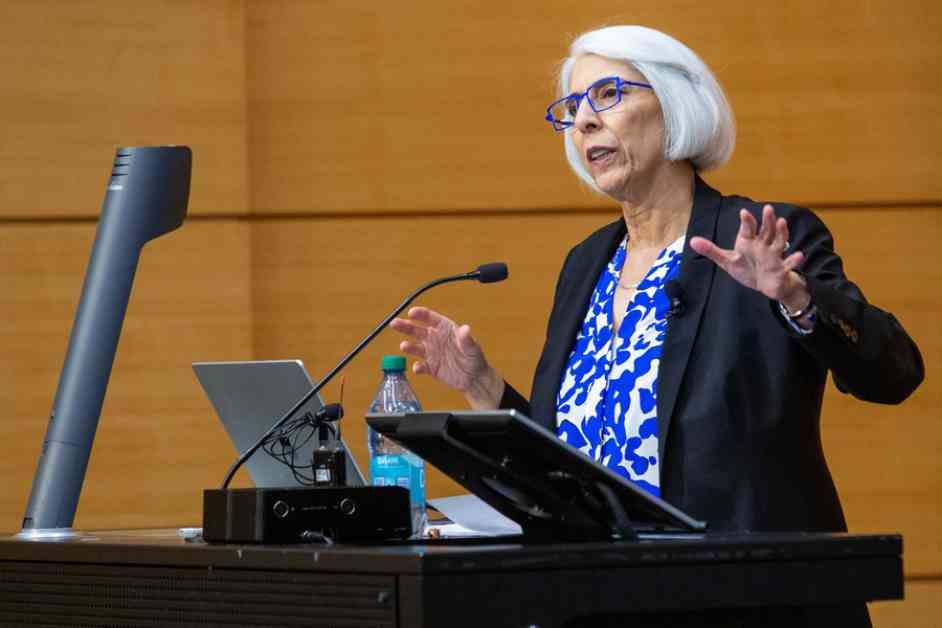Arati Prabhakar, the White House science advisor, recently highlighted the importance of the US maintaining its global leadership in research in the fields of science and technology. She emphasized that this has been a long-standing strength of America since the end of World War II. Prabhakar, who serves as the director of the Office of Science and Technology Policy (OSTP) and co-chair of the President’s Council of Advisors on Science and Technology (PCAST), noted the need to continue investing in basic research and leveraging it for commercial purposes.
During a talk at MIT, Prabhakar discussed the Biden administration’s efforts to facilitate collaboration between the public and private sectors to accelerate technology transfer to the market. She addressed key issues such as cancer prevention, climate change, and artificial intelligence (AI). Prabhakar praised initiatives like the “Cancer Moonshot” program, aimed at reducing the cancer death rate, and highlighted the importance of addressing public health challenges to ensure a future where good health is accessible to all.
Regarding AI, Prabhakar acknowledged the potential benefits and risks associated with the technology. She emphasized the importance of taking proactive steps to ensure that AI enhances productivity and economic growth. In the context of climate change, Prabhakar stressed the need for collective action to mitigate its impact and build a sustainable future. She commended recent legislative efforts, such as the bipartisan infrastructure bill and the Inflation Reduction Act, as significant contributions to the clean energy transition.
Prabhakar’s work at the White House is guided by President Biden’s vision of America as a nation of endless possibilities. She views science, technology, and innovation as essential components of creating opportunities for all Americans. Drawing on her extensive experience in both government and the private sector, Prabhakar emphasized the role of scientists and technologists in expanding opportunities and building a better future for the country.
With a background in engineering and a distinguished career in research and innovation, Prabhakar is committed to driving progress and fostering collaboration across different sectors. Her leadership in organizations like DARPA and NIST underscores her dedication to advancing scientific research and technological development. Prabhakar’s academic achievements, including a PhD in applied physics, reflect her expertise and passion for pioneering new solutions to complex challenges.
In conclusion, Arati Prabhakar’s perspective on sustaining US global leadership in research highlights the critical role of science and technology in shaping the country’s future. By prioritizing innovation, collaboration, and inclusive growth, she envisions a society where opportunities abound and progress is a shared endeavor. Prabhakar’s commitment to advancing research and technology underscores the transformative power of science in addressing global challenges and creating a more prosperous and equitable world.














